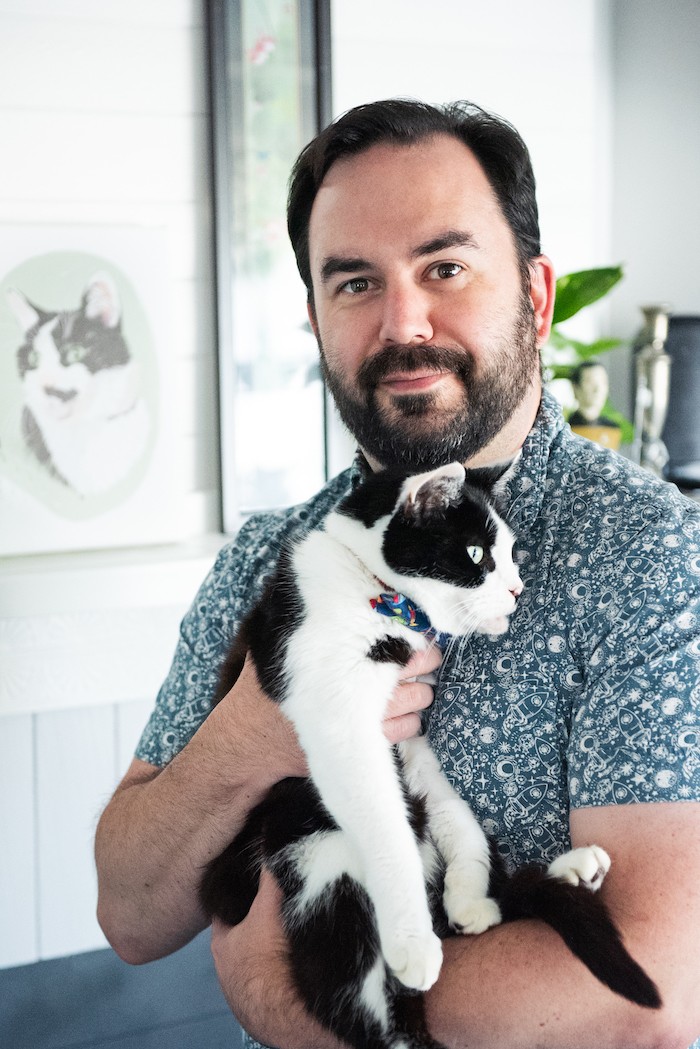THE INTERNET has been hugely beneficial to artists. Creators who would have labored in obscurity in earlier decades are now unrestrained by the logistics of physical distribution. However, artists now need to worry about the unauthorized use of their images on sharing sites like Tumblr, Imgur, and media giant BuzzFeed.
Those BuzzFeed lists of sad alpacas and Pogs nostalgia have to come from somewhere, and earlier this year two Portland cartoonists were surprised to find their work used on the site without permission. Matt Bors' popular comic on millennials was swiped from CNN, and Erika Moen discovered comics of hers in a list called "Everything You Wanted to Know About Lesbian Sex But Were Afraid to Ask." Both invoiced the site. Moen has since been paid, but Bors has not.
"On Tumblr, it pisses me off, but at the same time I know I'm not allowed to get mad or express that, because that's just how the internet works," says Moen. "But then, when an actual company with an actual budget [does it]... that is inexcusable."
BuzzFeed straddles the line between traditional and social media. The site employs staff who generate original content, as well as legions of unpaid community editors who submit work for eventual publication on the site. For content created by its staff, BuzzFeed pays for subscriptions to the AP, Reuters, and Getty's image galleries. Unpaid contributors have to click through an agreement stating that they understand copyright, though many of them clearly don't.
Regardless of whether a post is done by staff or by unpaid contributors, it still has ads and generates revenue for the site. A lot of revenue. According to CrunchBase, a technology company database, BuzzFeed has $46 million in funding.
BuzzFeed has claimed that its use of images falls under fair use, which states that another party can use copyrighted material if its use is transformative as opposed to derivative. In an April 2012 interview with the Atlantic, BuzzFeed founder Jonah Peretti characterized the site's sequencing and labeling of images as exactly that: Essentially, Peretti claimed that addition of "lots of little things" like captions added up to the creation of an original work.
Fair use is murky territory. Remember that Obama "Hope" poster? The AP sued artist Shepard Fairey for using their photo as the basis for his art. They settled out of court. Moen did not see the BuzzFeed post that used her work as transformative. "All they did was create a list of them and put a title on top of each image. That's not writing... you did nothing. All you did was take other people's work and put a silly caption on it."
Katie Lane, an attorney and advocate for freelancer rights, agrees. "I would argue that it isn't [transformative], because you haven't added much too it. Could you argue that in court? Yes. Would that be a waste of everyone's time? Probably. Which is, I think, why they said they'd pay [Moen's] invoice."
Lane notes that as the law is written, the burden of getting that invoice paid is on creators. "It's not like there's a copyright police," she says. "The person who owns the copyright has to be the one who enforces it." Moen, Bors, and others can't just worry about selling books and prints. They also have to worry about whether their work is generating ad revenue without their permission. Every share, click, and view BuzzFeed gets is income for a huge media entity that sometimes uses work from non-huge artists.
Bors finds it exasperating. "Unless you want to lawyer up [over] a $25 reprint," he says, "you're probably shit outta luck."














